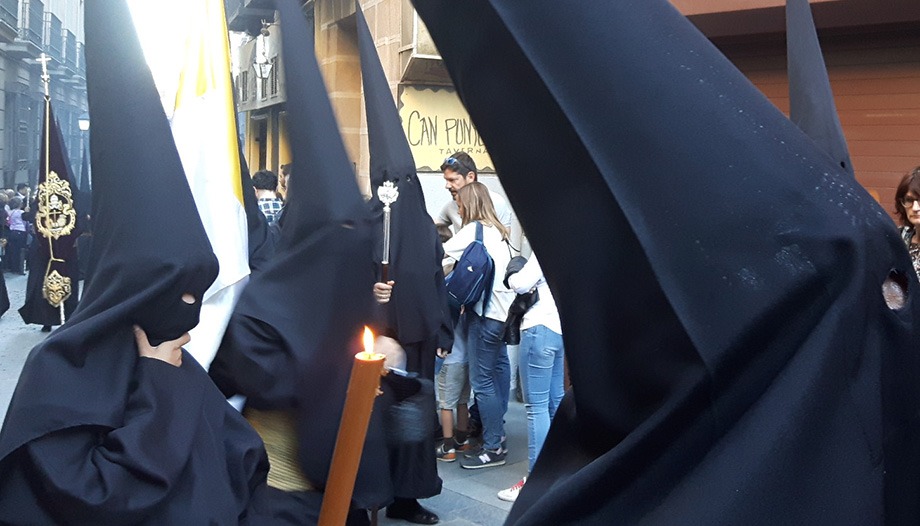Sometimes it is useful to remember basic concepts that are taken for granted but need to be refreshed so that they are not forgotten in the routine of everyday life.
In the case of sororitiesBeyond their daily activities, we cannot lose sight of their nature and purpose: they are public associations of the faithful of the Catholic Church whose mission is the Christian development of their members.
The ways to accomplish this mission are the trainingThe mission of the Congregation is the transmission of Christian doctrine, the fostering of the virtue of Charity, the promotion of public worship and the sanctification of society from within (cf. CIC c. 298.1 CIC).
It is the ecclesiastical hierarchy that establishes them as public associations and grants them juridical personality to fulfill their mission in the name, by delegation, of the Church.
At Sisterhoods are entrusted with activities reserved by their very nature to ecclesiastical authority (cf. CIC c.301) and are therefore, logically, under the supervision of that authority (cf. CIC 303).
They are not autonomous entities; their mission, activities and pastoral orientations are determined by the Church, immediately represented by the Ordinary of the diocese in which the brotherhood is constituted.
Having centered the bases of the nature and aims of the brotherhoods, it seems clear that these will have to be attentive to the pastoral indications that in every moment the Church proposes to the faithful, to assume them as their own and to take care in their diffusion and implementation among their brothers, with an active obedience. In each diocese these indications of government are set by the ordinary of the diocese, in Spain by the Spanish Episcopal Conference.
It is in this context that the work presented by the same last January under the title of "The faithful God keeps his covenant."which he subtitles as "Instrument for pastoral work on the person, family and society offered to the Church and Spanish society from the faith in God and the perspective of the common good"..
This extensive document, rather than a program of actions, proposes ".reflections to be shared with the members of the Church and with Spanish society, starting from a look at the current cultural, social and political situation.".
Its intention is to "to stimulate reflection and dialogue on issues of particular importance for ecclesial and social life at a time of convergence of multiple events, political, economic and cultural expression of a great transformation that affects the transmission of faith and coexistence in our society.". Reflections that "want to encourage the public presence of Catholics in the environments and institutions of which they are a part".
This is where the sororitiesThe institutions are offered a work plan that has already been drafted and is fully guaranteed. A plan that revolves around three axes: person, family and society.
The document does not offer a catalog of activities to be carried out, but rather proposals to reflect on, deepen and adjust them to the programming of the brotherhoods in their task of ongoing formation and sanctification of society.
The main thrust of this report is already set out in the Introduction: "...".Person and society are inseparable, and the family is the alliance that unites them.". This basic outline has been altered by a profound cultural and social crisis, which is why the Church "offers the proposal of an anthropology adequate to elementary human experience".
From here he identifies some of the problems of today's society: the crisis of the welfare state; the culture of individualism (reduction of the person to the individual); the replacement of convictions by feelings; the dictatorship of relativism, and the consequences of these problems in the family and society.
Following this analysis, he notes "the lack of public commitment on the part of Catholics" whom he encourages, or rather exhorts, to intervene by proposing and, if necessary, confronting a Christian anthropology.
This Document is intended to provoke in the sororities The aim is that, without neglecting the day-to-day management of the organization of worship services, processional processions, attention to the brothers, etc., they should also be centers of intellectual and doctrinal excellence that can play a decisive role in the reconstruction of civil society.
It is quite possible that this undertaking will be rejected, even opposed, also in the sisterhoods, by those who are encapsulated in their ivory tower, disconnected from reality, and fear that their false security will be shaken. It is better to ignore them.
D. in Business Administration. Director of the Instituto de Investigación Aplicada a la Pyme. Eldest Brother (2017-2020) of the Brotherhood of the Soledad de San Lorenzo, in Seville. He has published several books, monographs and articles on brotherhoods.








